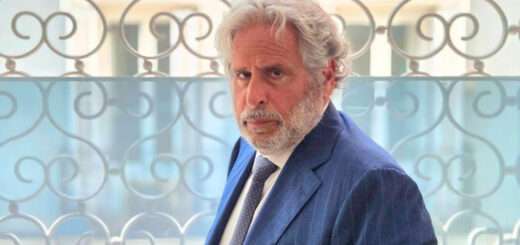A Disgrace to Our Values: An Armenian Response to the Gaza Humanitarian Foundation

BY RAFFY ARDHALDJIAN
Earlier this year, Armenia officially recognized the State of Palestine—a principled move I supported in my article, titled “Recognizing Palestine Is a Reflection of Armenian Values.” That decision reflected not just geopolitics, but a moral stance rooted in our experience as a genocide-surviving nation—one that knows too well the consequences of silence and complicity.
That moral clarity is now being clouded by the troubling presence of an Armenian—David Papazian—on the board of the Gaza Humanitarian Foundation, a controversial organization facing serious public allegations of humanitarian failure and potential violations of international law in Gaza. Papazian, identified in multiple reports as an Armenian national, serves as president of the GHF. According to public records, the foundation was registered in Geneva, and there appears to be an additional nonprofit with the same name registered in the United States.
International media outlets—including the BBC, TIME, and several humanitarian organizations—have reported that GHF aid distribution sites have become chaotic and militarized. More than 500 Palestinian civilians have reportedly died in or near these sites since May. Some survivors describe fenced-in “aid zones” guarded by private contractors. The UN Office for Human Rights has issued statements warning that the GHF may be complicit in violations of international humanitarian law, including war crimes and crimes against humanity.
According to a vague and selectively curated biography, Papazian appears to have served as chairman of Fly Arna—Armenia’s now-defunct budget airline—and as CEO of the Armenian National Interests Fund (ANIF), an investment initiative launched under Prime Minister Pashinyan and Tigran Avinyan, currently serving as the Mayor of Yerevan. His leadership of ANIF, as reported by Hetq.am, was marred by accusations of mismanagement, financial losses, and board instability—contributing to what critics describe as institutional collapse. This is not a personal attack, and to my knowledge, Papazian has not been formally accused of any criminal wrongdoing. My concern is with the ethical implications of his leadership roles—past and present—given what is publicly known.
Speaking out when our values are at stake does not shame Armenians—it affirms who we are. Silence, especially when an Armenian is visibly linked to a humanitarian controversy, risks undermining the very principles we claim to uphold.
I hope Armenian diaspora institutions and civic leaders will take this moment to reaffirm—through statements, actions, or quiet alignment—that the values we claim as a people, rooted in dignity, memory, and justice, are not represented by, nor aligned with, anyone involved in the leadership or practices of the Gaza Humanitarian Foundation.
I also call on Armenia’s Ministry of Foreign Affairs to reaffirm its commitment to international humanitarian law and the protection of civilian life—and to make clear that the Armenian state does not endorse or support any entity whose actions raise serious humanitarian concerns under international law.
As Armenians, we must uphold our values not only in remembrance of the past, or when our own people are subjected to ethnic cleansing, but also in response to the suffering of others—especially when many in the world remain silent.
Whoever David Papazian is, he does not represent us. And the world deserves to know that.
Raffy Ardhaldjian is a Fletcher School graduate and advisor to tech companies, public institutions, and NGOs. In his spare time, he writes about strategic topics spanning Armenia and the Armenian diaspora.





